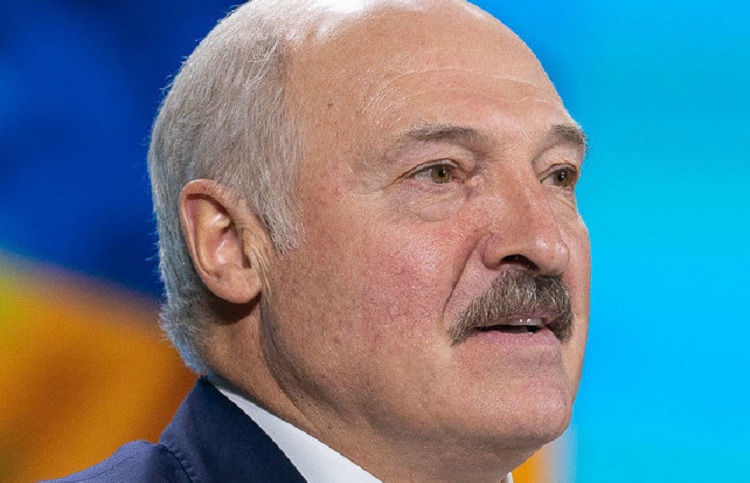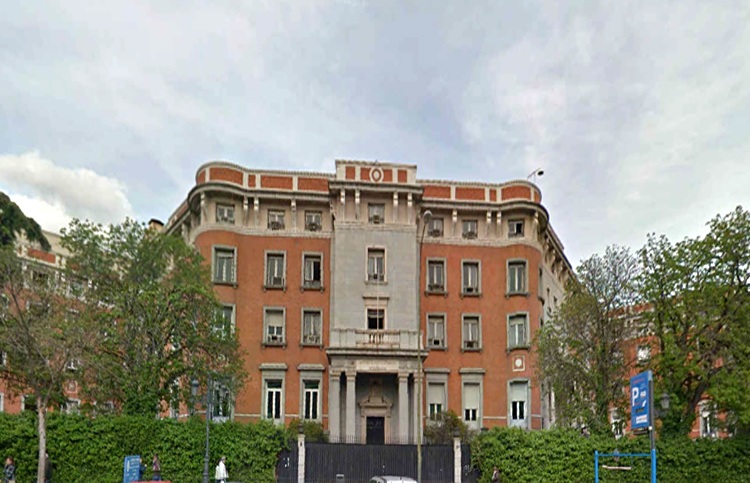The Diplomat
The European Council yesterday tightened sanctions against the regime of Belarusian President Alexander Lukashenko after Belarusian authorities diverted a Ryanair plane covering the route between Greece and Lithuania to detain an opposition blockade-runner, an act the EU has not hesitated to call a “hijacking” and a “blatant attempt to silence the opposition”.
A Ryanair Boeing 737-800 aircraft with more than 120 passengers on board covering the route between Athens and Vilnius was forced to make an emergency landing in Minsk after Belarusian authorities reported a “potential security threat”. Once on the ground (where it arrived escorted by a Belarusian fighter jet on the direct orders of the president), regime authorities detained dissident journalist Roman Protasevich, one of the founders of the opposition channel Telegram Nexta, and his girlfriend, Sofia Sapega.
The Belarusian authorities later claimed that the plane had received a threat from the Palestinian movement Hamas, without specifying the link between this alleged threat and the two arrests. After the forced stopover in Minsk, five people, including the detainees, left the aircraft, according to Eurocontrol. Ryanair denounced the presence of armed agents and that “some KGB agents” had also alighted at the airport.
Given the seriousness of these events, which directly affected a flight between two EU Member States, the heads of state and government of the Union yesterday introduced the Belarus issue as the first item on the agenda at the European Council meeting in Brussels, at the proposal of the President of the Council, Charles Michel, who warned in a brief press release that “the incident will not remain without consequences”.
Several European governments, especially Lithuania (whose president, Gitanas Nauseda, spoke of “state terrorism”) and Poland, appeared in Brussels demanding immediate sanctions against Alexander Lukashenko’s regime. In the case of Spain, President of Government Pedro Sánchez described the incident as “absolutely unacceptable”.
For his part, the EU High Representative for Foreign Policy, Josep Borrell, ordered the summoning of the Belarusian Ambassador to the Union, to whom he conveyed “the EU’s condemnation of the inadmissible step taken by the Belarusian authorities, the hijacking of a plane”, which is “another flagrant attempt to silence the opposition”. NATO Secretary General Jens Stoltenberg declared that this is “a serious and dangerous incident that requires an international investigation”.
New sanctions
Last fall, the EU adopted sanctions against 88 Belarusian citizens and seven Belarusian organizations over election fraud and the subsequent crackdown in 2020. Lukashenko, his son Viktor and 53 other senior Belarusian officials are on the list of those sanctioned by the EU. They are all banned from entering the EU and any assets they may have in the EU will be frozen by the national authorities.
Following the plane incident, European leaders decided yesterday to go further. To begin with, the President of the European Commission, Ursula von der Leyen, announced before the start of the summit that European financial aid to Belarus, valued at 3 billion euros, will be frozen “until such time as it becomes a democratic country”.
Subsequently, the European Council adopted a declaration in which it “strongly condemns” the incident, which has “endangered aviation safety”, and calls for “the immediate release of Raman Pratasevich and Sofia Sapega”. It also calls on the International Civil Aviation Organization (ICAO, the UN body responsible for overseeing the global aviation system) to “urgently investigate this unprecedented and unacceptable incident (the organization’s president has already convened the Council, made up of the 36 current member states, for Thursday)”.
The European leaders also call on the Council to “adopt, as soon as possible, additional lists of persons and entities on the basis of the relevant sanctions framework” and to adopt “new targeted economic sanctions”, and invite Borrell and the Commission to “submit proposals in this regard without delay”. The European leaders also demand that “all EU-based airlines avoid overflight of Belarus” and that the Council take “the necessary measures to prohibit overflight of EU airspace by Belarusian airlines and to prevent access to EU airports for flights operated by such airlines”.







